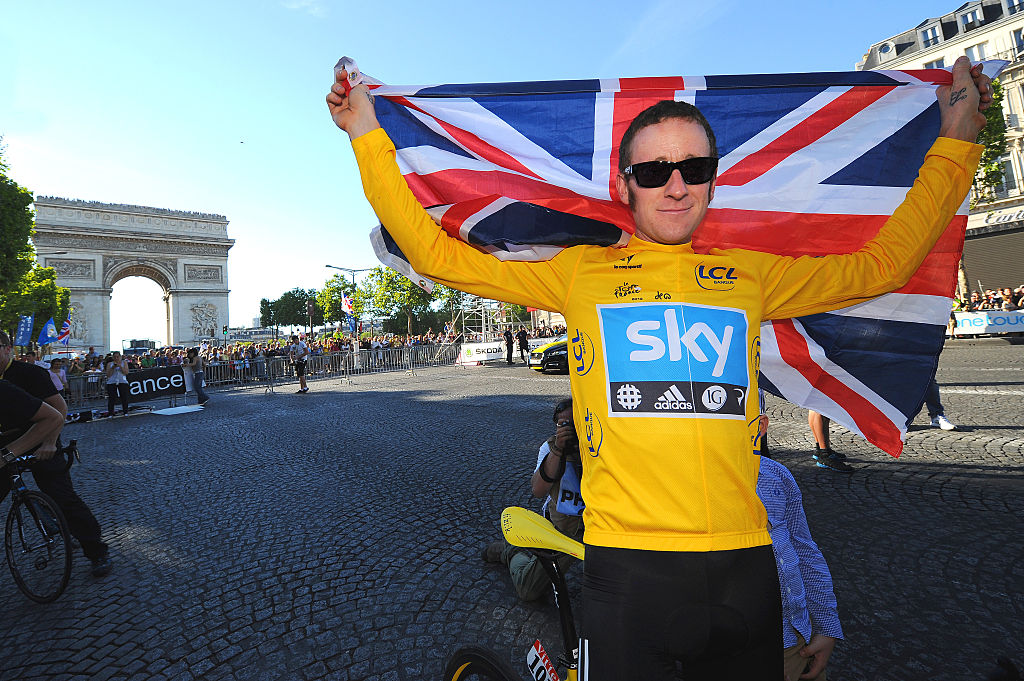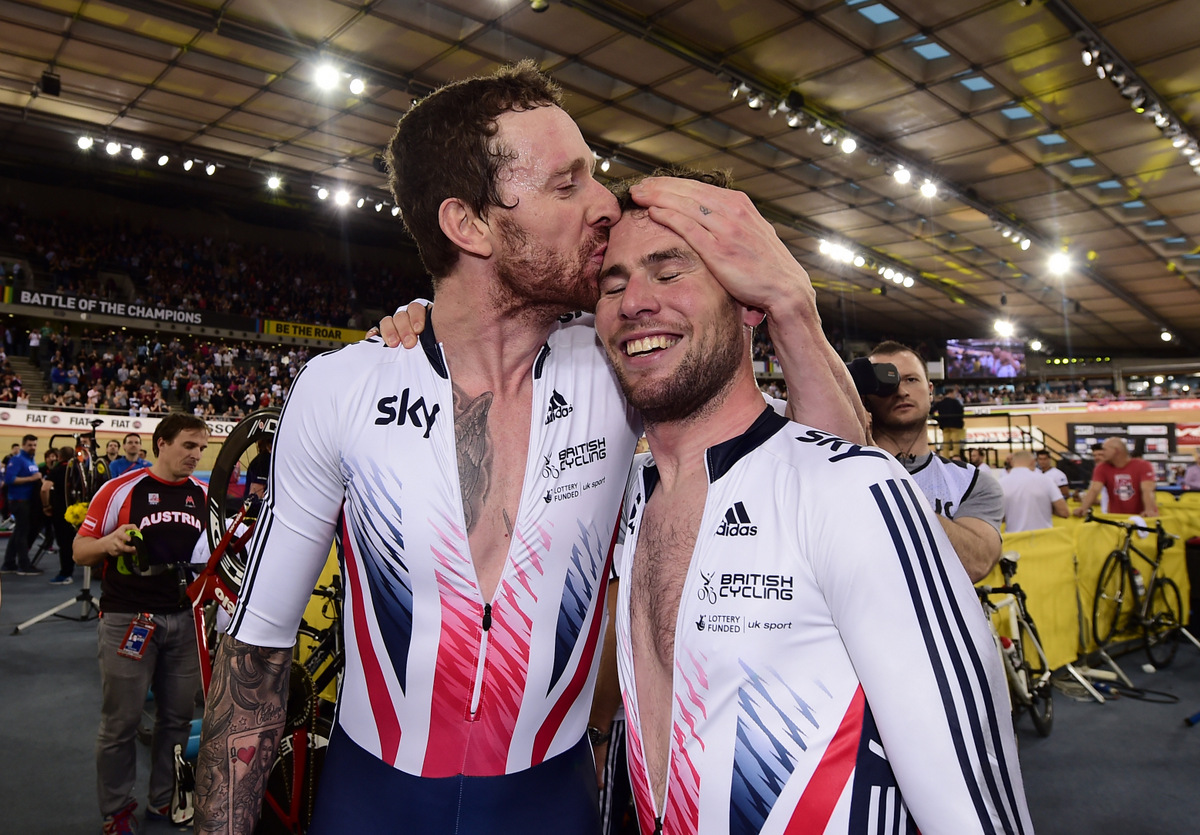Bradley Wiggins 'in awe' of Tour de France contenders 10 years after victory
Briton says Quickstep should select Cavendish for Tour de France

A decade has passed since Bradley Wiggins won the 2012 Tour de France, but the Briton is reticent to mark the anniversary overtly. “I haven’t really given it much thought, if I’m honest. It’s not something that I want to keep remembering, every anniversary,” Wiggins said in a conference call on Thursday. “I’m just amazed it’s been ten years. It’s gone so quick and so much has happened in that time.”
When journalists from across Europe first joined the call, organised to promote his current gig as an analyst for Eurosport, they were breezily told by the PR assistant on hand that questions about anything other than this year’s edition of the Tour de France would not be answered.
Shortly afterwards, however, Wiggins confessed that he had not “really looked at the route other than the first few stages” and later suggested that he had not been following news of team selections particularly closely either.
At one point, the call risking lurching into the kind of anodyne territory charted by Pelé in his role as a corporate ambassador, when he would inevitably tell international reporters that their particular country was his outsider pick to win the World Cup. Wiggins dutifully toured Europe, answering questions about the prospects of Jonas Vingegaard, Bora-Hansgrohe and whatever you were having yourself.
Mercifully, Wiggins was also willing to ignore the PR handler’s diktat about sticking rigorously to the present day, and he discussed his feelings about the impending anniversary and about the 2012 Tour de France itself. It was, remarkably, his last appearance at the race, as he was deemed surplus to Sky’s requirements in the two years that followed, and he left the team midway through 2015.
That all seemed unthinkable in the summer of 2012, when, within ten days of riding onto the Champs-Élysées in yellow, Wiggins claimed a gold medal on home roads at the London Olympics. For better or for ill, life would never be the same again.
At the time, Wiggins was feted as a national hero, but the public perception of his and British cycling’s achievements in that era has since been coloured by the scandals that subsequently emerged, notably the Fancy Bears hack that revealed his TUE for triamcinolone and the medical tribunal into the practices of former Team Sky doctor Richard Freeman.
Get The Leadout Newsletter
The latest race content, interviews, features, reviews and expert buying guides, direct to your inbox!
Wiggins himself, meanwhile, has often evinced a certain ambiguity about his success, even in his final months at Team Sky, when he used to suggest, in jest perhaps, that winning Paris-Roubaix would be a greater achievement that landing the Tour. Training for it, he said then, was certainly more enjoyable.
The mindset of an elite athlete is so abnormal, and not a healthy one
Bradley Wiggins
Ten years on, what his current relationship with his achievements of 2012?
“It's good. I’m very proud of them: I’ve come to terms with them, I accept them. They’re part of my life,” Wiggins said. “I was a different person [in 2012], but not in a sort of massive, deep sense. I think the thing I try to relay now is that the mindset you have to adopt as an elite athlete is a very different one to normal life. I’ve realised that now.
“The mindset of an elite athlete is so abnormal, and not a healthy one, but it's what makes the achievement so remarkable and what draws people to the sport. I’m so far removed from it now. I think the sad thing is that if I’d stayed in that mindset, I’d be in a very bad place now. It’s why you achieve greatness, really. It’s at the expense of everything else.”
Wiggins had an uneasy coexistence with Chris Froome during that 2012 Tour, when he also bristled at questions about the credibility of his and his Sky team’s performances. He cut a mildly more relaxed figure once the race left the Pyrenees and headed towards Paris, but he downplayed the idea that he had not enjoyed the experience of wearing the maillot jaune.
“I think it was just a sort of deflection tactic for all the bullshit that goes with it, really, with all the media circus,” Wiggins said of his demeanour on the race. “It’s hard, but I loved every moment of wearing that yellow jersey, don’t get me wrong. If it was now, I’d be handling the circus aside from it very differently – a lot more gentlemanly, less swearing and a lot more appreciative of the people around me. But I can’t account for the person I was then off the bike, because it’s what made me so good on the bike, really.”
Cavendish

Some of Wiggins’ teammates from that time are still in the peloton a decade on. Mark Cavendish won three stages in 2012 on a Sky team that was built around Wiggins’ yellow jersey challenge, but he looks set to miss out on selection for QuickStep-AlphaVinyl this year, which would deny him the chance to notch up a record 35th Tour stage victory.
“Patrick [Lefevere] knows what he’s doing but from a personal point of view, it would be a real shame if Cav’s not there,” Wiggins said. “Any other team would be crazy not to take him, he’s just won a stage of the Giro.
“Aside from the personal relationship with him, I find it hard to see why you wouldn’t take Mark: from a performance point of view, for the sponsors, for the impact he has on other riders around him on the team and the fact that he won four stages last year and the green jersey. Why wouldn’t you take the defending green jersey back to the Tour de France? I can’t see anybody else on that team who would merit going ahead of him, personally.”
I’m in such awe of what they do that I can’t ever imagine that I did that
Bradley Wiggins on recent Tour winners
Wiggins’ old rival Froome has been confirmed in the Israel Premier Tech line-up, even if he has never approached his form of old in the aftermath of his career-threatening crash at the 2019 Dauphiné. “He may surprise us all. GC may be beyond him, but it would be nice to see him up the road in a break and pull off a stage win,” said Wiggins, who backed his former teammate Geraint Thomas to lead the Ineos Grenadiers challenge in the wake of his victory at the Tour de Suisse.
“Even though he might not have the physical attributes he had a couple of years ago when he won the Tour – as happens to us all – that recent win in the Tour de Suisse was incredible. For sure, he’s in podium contention,” Wiggins said. “And because of the real racer that Geraint is, if it gets down to a position where there’s a little bit of cat and mouse between UAE and Jumbo-Visma, he could slip into a move and surprise everyone.”
The men to beat, however, are from Slovenia, namely Primož Roglič (Jumbo-Visma) and Tadej Pogačar (UAE Team Emirates). Wiggins has observed Pogačar at close quarters this season from aboard an in-race motorbike, and he found it hard to imagine how he would have set about trying to beat the Tour champion had he been in the peloton a decade ago.
“It’s difficult to answer that. When I look at it now and I look at ten years ago, it just seems worlds apart and I can’t imagine ever doing anything like that again, so I’m not in the mindset where I’d say, ‘Fuck it, I’d do this,’ or, ‘I’d attack him here or there,’” Wiggins said. “I’m in such awe of him and I’m so detached from that era, that I can’t really answer that question with any sincerity really.
“I would naturally, automatically think that there’s no way I could beat him. But I perhaps would be betraying my former self by saying that really. I don’t know what the Wiggo of 2012 would have said or how he would have handled it. That’s one of the downsides of being so close to the sport now on the motorbike. I’m in such awe of what they do that I can’t ever imagine that I did that, really.”

Barry Ryan was Head of Features at Cyclingnews. He has covered professional cycling since 2010, reporting from the Tour de France, Giro d’Italia and events from Argentina to Japan. His writing has appeared in The Independent, Procycling and Cycling Plus. He is the author of The Ascent: Sean Kelly, Stephen Roche and the Rise of Irish Cycling’s Golden Generation, published by Gill Books.